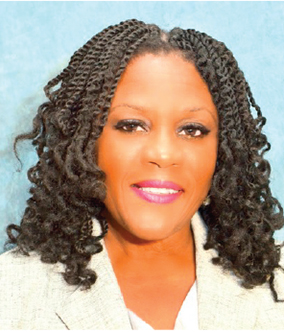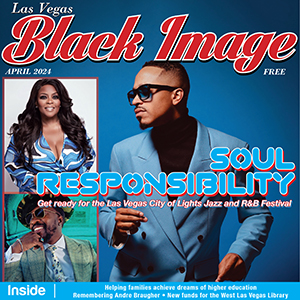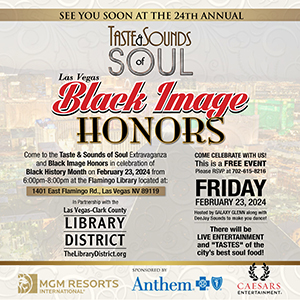Freedom and Diversity: Hand in Hand with Hospice Care
August 9, 2022 by agutting@reviewjournal.com
Filed under Health
Freedom and Diversity: Hand in Hand with Hospice Care
 By Cassandra Cotton, Nathan Adelson Hospice Community Outreach Manager
By Cassandra Cotton, Nathan Adelson Hospice Community Outreach Manager
On Independence Day (Fourth of July), the United States commemorates the Declaration of Independence, which was ratified by the Second Continental Congress on July 4, 1776. Juneteenth honors the end to slavery in the United States and is considered the longest-running African-American holiday.
Both the Fourth of July and Juneteenth inspire hope and promises of freedom and diversity in our country. As July 4th and Juneteenth conclude, let us continue to celebrate our collective interdependence.
Diversity in the workplace carries a host of benefits for healthcare employers, their staff, and their patients — in creating a stronger feeling of inclusion and community, and in making the workplace feel safer and more enjoyable.
“An individual has not started living until he can rise above the narrow confines of his individualistic concerns to broader concerns of humanity” — Martin Luther King.
Both freedom and diversity are key to having cultural conversations and gaining a better understanding of the specific needs of others. Keeping in mind the beliefs, experiences, and values of the patients and their families can improve quality of life.
Nathan Adelson Hospice prides itself in having a care team comprised of various races, ages, genders, ethnicities, and orientations while representing a wide range of experiences and backgrounds.
The team provides patients with quality end of life care — psychologically, physically, spiritually and socially. At Nathan Adelson Hospice, we honor the specific traditions regarding death and dying of religions such as Judaism and Buddhism.
We also believe that “no one should end the journey of life alone, afraid, or in pain,” which is the Nathan Adelson Hospice vision. We celebrate diversity and freedom through a number of culturally specific programs. For example, our Latin program, Veterans Program, and Jewish Accreditation Program are all designed to expand reach, to nourish, and to honor while breaking down barriers to quality end of life care.
In addition, through our Multicultural Luncheon Symposium we unite the community to educate people from various cultures and faiths on end of life care tailored to their needs. The dissemination of information specifically tailored to these groups regarding hospice care is monumental to bridging gaps to hospice care.
Hospice providers have increasingly sought avenues to better understand reasons leading to reluctance among various groups to seek out hospice or palliative care.
Fear and mistrust of the overall health care system, as well as a lack of understanding and awareness, represent some of the largest known barriers to hospice and palliative care.
The National Healthcare Quality and Disparities Report presents trends for measures related to access to care, affordable care, care coordination, effective treatment, healthy living, patient safety, and person-centered care.
The report offers the latest available findings on quality of — and access to — healthcare, as well as disparities related to race and ethnicity, income, and other social determinants of health.
Reports like The National Healthcare Quality and Disparities Report provide not only direction but also encourage a call for action to provide an end-of-life care experience that reflects the communities of our consumers and to overcome barriers to care.
Commitment and Dedication
“No one should end the journey of life alone, afraid, or in pain.”
Nathan Adelson Hospice has been a part of the caring experience for over 40 years, as a nonprofit hospice and palliative care organization serving all of Southern Nevada, including Clark and Nye counties. The care is provided by a specialized team of physicians, pharmacists, nurses, social workers, spiritual care workers, and volunteers who provide hospice and palliative care to individuals who are at home, in a residential or skilled nursing facility, or hospital.
Both Juneteenth and July 4th represent pride, and each should serve as a day for us to restate and rededicate ourselves to action. Let us work collectively to bring an end to human suffering and unfair disadvantages, and to provide opportunities for all communities to experience equitable healthcare.






